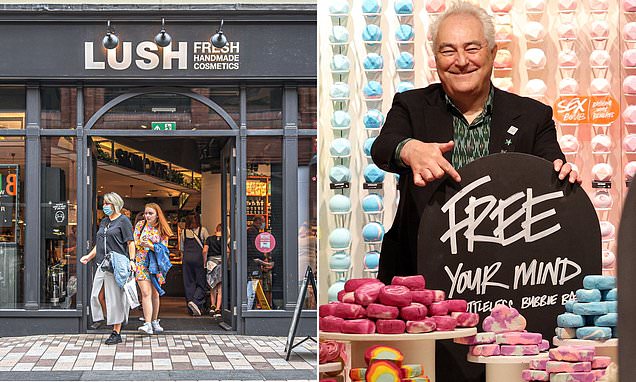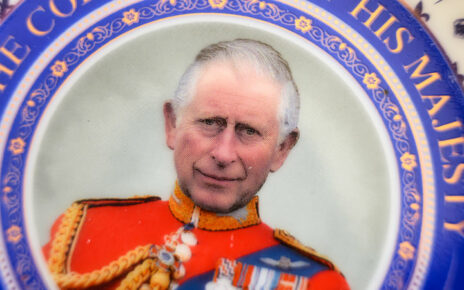Woke cosmetics firm Lush pays £5million in bonuses… After its £5million government bailout
- Lush forked out £4million in bonuses to its top execs despite posting a loss
- The cosmetics seller has also received £5.1million in government support
It’s known for its highly-perfumed fizzing bath bombs and a supposedly cleaner-than-clean social conscience.
But Lush may not come out smelling of roses after forking out £4million in bonuses for its top brass last year – despite profits falling by 90 per cent.
Bonanzas were handed to its directors, including 71-year old chief executive Mark Constantine who co-founded the business in May 1995, and his wife Mo.
Awards were also dished out to six top bosses, despite the firm’s poor performance for the year ending June 30, 2022.
The windfalls also came despite Lush receiving £5.1million in government support, including a reduction in business rates and furlough for staff.

Bath bomb seller Lush paid out £4million in bonuses to its top brass staff last year after the firm received £5.1 million worth of government support
In financial accounts filed earlier this month, the high street name said it had struggled to recover from the pandemic while feeling the impact of Russia’s invasion of Ukraine.
Lush made a loss of £260,000 for the financial year, compared with a profit of £21.7million for the previous one.
Annual accounts state that the company’s sales in the first six months of 2022 ‘fell well short of expectations’.
The firm is well known for being outspoken on social and political issues and has boycotted social media since November 2021.
It admitted sales may have been hit by leaving platforms including TikTok, Facebook and Instagram, but was proud of its stance due to social media’s ‘dangerous impact’ on teenagers’ mental health.
Addressing whether the decision to quit social media damaged sales or profits, Lush stated: ‘We simply don’t know. The manipulation of those same algorithms renders it impossible to know what might have happened anyway.’
The company said: ‘Inflationary pressures compounded by the war in Ukraine resulted in consumer spending power in most of our main markets and understandably impacted customer sentiment.’
Lush, which has around 100 shops in the UK and runs a manufacturing hub in Poole, said it had been hit by Covid disruption in the UK and Australia.
It also suggested Brexit could be to blame for sales across Europe failing to recover to the levels of 2019, the last year before the pandemic.

Lush blamed Russia’s invasion of Ukraine and Brexit after posting a £260,000 loss
Its accounts filed to Companies House stated: ‘Is Brexit to blame? Our popularity in Europe has waned since Brexit and we need to rebuild the love for our UK-owned brand across Europe.’
This was compared to a slightly better recovery in the UK, where sales had recovered to 10 per cent below 2019 levels.
Lush was blasted in 2018 by then home secretary Sajid Javid for launching an ‘anti-police hate campaign’ when it tried to draw attention to the ‘spy cops’ scandal, where undercover police officers fathered children with women they were spying on.
Supporters of fox hunting also vandalised shops when the company spoke out against the sport and raised money to tackle hunts in 2011.
A spokesman for Lush said the bonus was for bosses who handled a successful takeover of its North American arm, calling it an ‘extremely important transaction for the group’.
Source: Read Full Article

